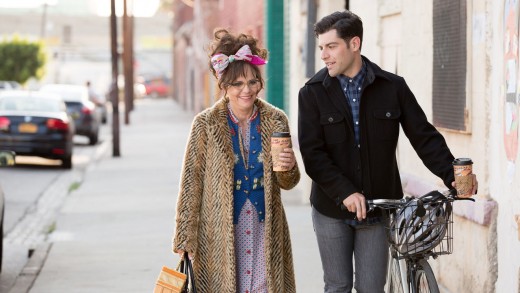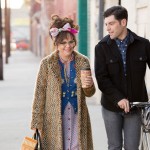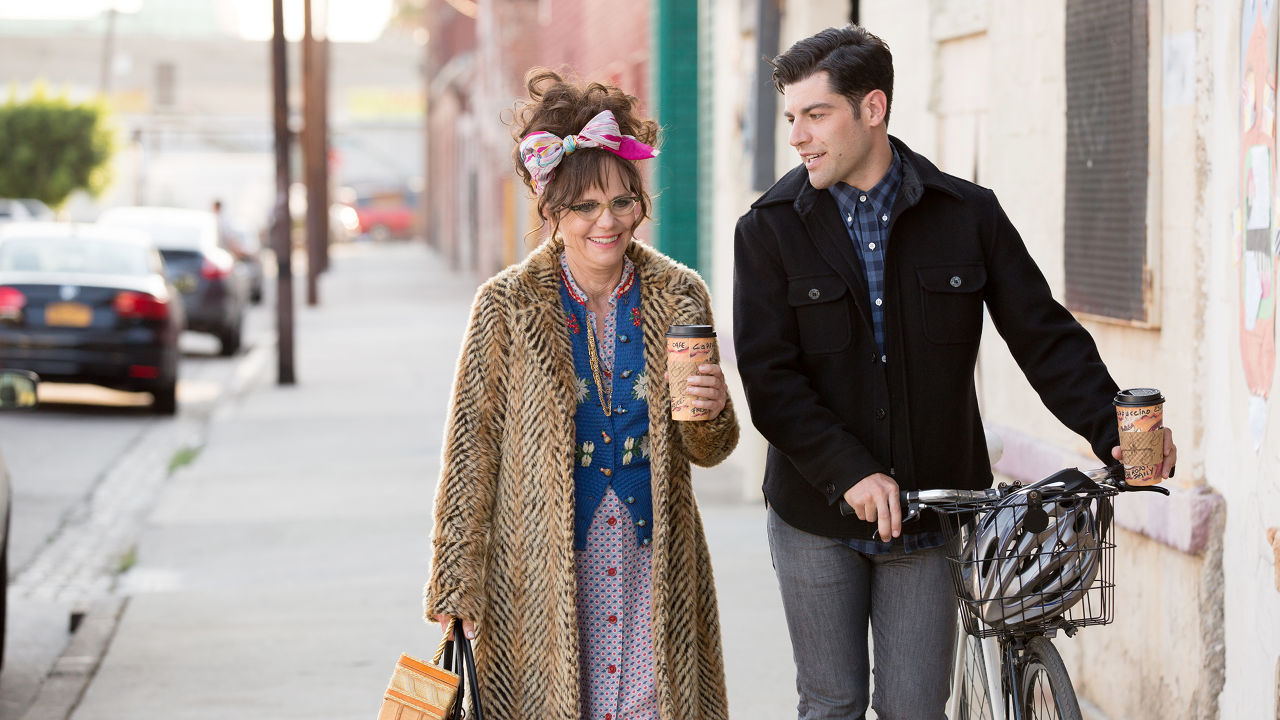How Michael Showalter And Sally Field Kept ‘Hello, My Name Is Doris’ Funny
Sally Field is one of the finest actors alive, but she doesn’t get to showcase her skills in the ways that she should these days. Sure, the 69-year-old actress occasionally gets to play Spider-Man’s aunt or President Lincoln’s wife, but a sad fact of the business is that Hollywood doesn’t make a lot of room for actors her age, regardless of the fact that many of them have done nothing but accumulate accolades and trophies throughout their careers.
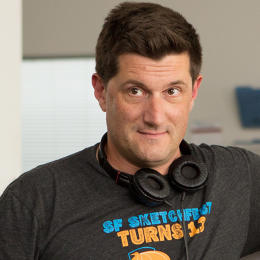
So when Field got the script to Hello, My Name Is Doris, she grabbed onto it with both hands. The romantic comedy stars Field as Doris Miller, a reclusive New Yorker whose tendency to collect junk, dress in clothes she’s had since the ’70s, and misunderstand social cues makes her the unexpected hit of the Brooklyn hipster set—a trait that comes in handy as she develops a serious crush on a much-younger coworker (played by Max Greenfield). The script, written by Michael Showalter (who also directed) and Laura Terruso, is based on a short by Terruso, and while it’s not afraid to use some of the weird humor that Showalter is known for with his The State/Stella/Wet Hot American colleagues, it’s also a grounded look at age, aging, missed opportunities, and the way that—in some ways—people never stop feeling like teenagers, no matter how old they are.
“I loved it, I loved it, it’s so weird,” Field gushes when talking about her reaction to the script. “It’s so odd and unusual, and the character is so special. I’d certainly never read anything like that—not as a young woman, not as an older woman, and especially in that it deals in such a quiet way about age. Doris never talks about age. She never talks about being old. It’s really about people—you’re just people that need contact with each other, and need not to be lonely. It’s such a special story.”
If Field was excited to get the script in her hands, though, Showalter was downright thrilled to get Sally Field to play Doris. “As soon as she agreed to do the movie, I changed my own goal—just to help her do what she needs to do, and to help Sally give the performance that she’s capable of giving. That was not easy, because I’d never worked with someone of her stature,” he says. “It was intimidating at first—who I am to give Sally Field input?”
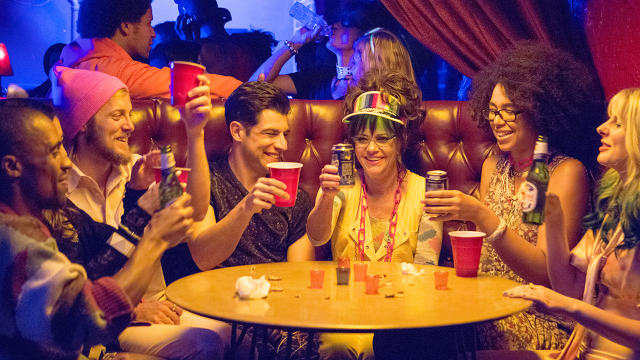
Finding Doris
Talking to Sally Field, even for a few minutes, is a masterclass lecture on the craft of acting. Showalter eventually overcame his intimidation (“I knew things about the character that she didn’t know. She knew things about the character that I didn’t know,” he says by way of explaining how he approached their collaboration), but she’s a titan in her field, and she thinks about character in ways that few actors do.
When I ask her about some of the themes of the script, for example, she keeps the focus strictly on Doris. The film is delightful and challenging, and it’s also subversive as hell—we’ve seen plenty of movies where Jack Nicholson or Richard Gere have a love interest half their age, but very few movies pair a leading lady with a younger man—let alone one with an age difference as extreme as Field and Greenfield. But Field says she didn’t even think about that aspect of the script when finding Doris.
“I was really looking at it through the character’s eyes, and how you bring that character to life. You really think sometimes, ‘Is she all there?’ She might have some serious issues to deal with,” Field says. “I was walking that line of feeling a character that you felt worked, so I never stood outside of it and saw the political ramifications on a society level—that men are allowed to date younger women. I never saw it like that—she’s someone who makes a connection with this person, and inside of her own head, she doesn’t see her own age.”
Field was empowered to create Doris in ways that brought her to life from the inside out. The poster for the film features her with a giant bow in her hair, bangs cut short, and her hair up big—and that’s something that Field found for the character. Showalter, she says, allowed her to create the whole look.
“I imitated a Brigitte Bardot hairdo—she used one of those postiches, and they had a big thing tied around it, and she had long bangs. I cut my bangs short because it looked so silly,” Field explains—but the object of the look wasn’t silliness. “To her, in Doris’s head, she saw that picture of Brigitte Bardot and loved it, and she’s worn her hair like that ever since. She doesn’t see herself—she doesn’t see anything outside of this little tiny world she lives in in her own head.”
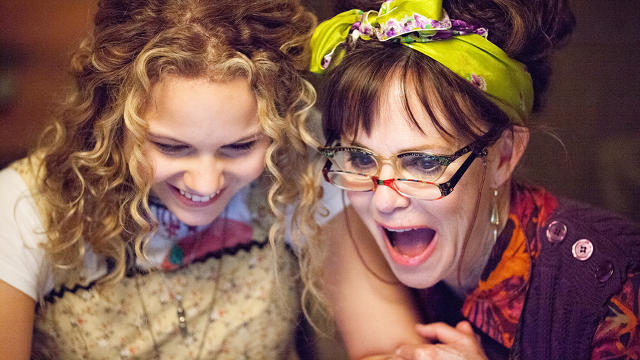
Keeping It Grounded
That tension—between silliness inherent in any comedy and the reality of what Doris’s life would be like—is something that it takes a clear vision to keep steady. And for Showalter, that was one of the crucial parts of the project. Showalter has plenty of experience with silliness, of course—in films like Wet Hot American Summer, the characters are there to serve the jokes, while in Doris, the jokes are there to serve the characters.
“I wanted to tell a story that was funny, but that also had really sad moments, and sweet moments, and moments that moved you in a different way,” Showalter says. “When I’m collaborating with David Wain or Michael Black or those guys, it’s something different—it’s sort of like a band or something. It’s going to sound different, so when I’m on my own doing a solo project, it’s not going to sound like that—it’s going to sound more like this. There are scenes that you’d never see in Wet Hot or something—it’s new, and it’s really exciting to me.”
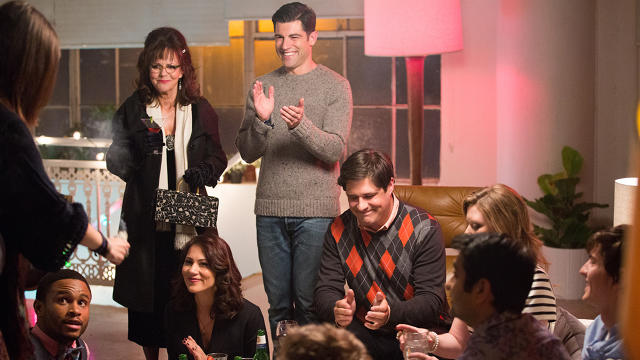
There are scenes in Hello, My Name Is Doris that are as funny as anything in Wet Hot American Summer, but there are also moments where Field is still clearly a two-time Academy Award winner. There are moments that wouldn’t be out of place on an Oscar reel, and Showalter knew his job was to make room for both—however he had to do it.
“When Sally agreed to do the movie, I knew that my job was to give her the platform to give her best performance,” he says. “There were things I had to realize—when we were doing a difficult scene, I had to realize that she needs everyone to be quiet right now. We’re all trying to adjust the lights and people are talking behind the camera, and everyone’s trying to do their best work, but sometimes the actor needs everyone to be quiet—so sometimes I would basically be like, ‘Everyone be quiet so that Sally can work.’”
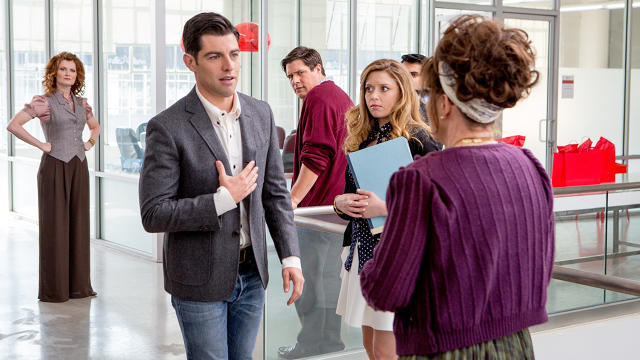
Picking A Side
All of those things work in Doris because the movie picks a side early on, and it’s always Doris’s side. Her quest is quixotic—she’s a woman in her sixties who pursues a crush on a hot young coworker—and there’s a lot of humor in what she does. But it’s never at Doris’s expense, and that keeps things sweet, even as it plumbs the absurdity of the situation. And both Showalter and Field knew how important that was to making the movie work.
“That’s really who Showalter is. He’s not a cynical man, and he doesn’t write cynicism at all—even the hipsters aren’t cynical. That’s a very cynical world, and these weren’t,” Field says. “There’s an open-heartedness to it, and that really comes from him. She’s doing these funny things, but she doesn’t think they’re funny. The audience seeing them thinks they’re funny, but they’re not laughing at her—you’re kind of laughing painfully with her.”
Part of that, Showalter says, came from Max Greenfield, who can play nice guys with an edge as well as anybody—and whose chemistry with Field made the whole thing feel just a little less absurd. “He’s nice to her, and it comes from a genuine place—but he’s also, like, a super-hot guy,” Showalter says. “I loved the fact that they had chemistry—Sally is every bit the romantic lead, so I think their chemistry is really natural.”
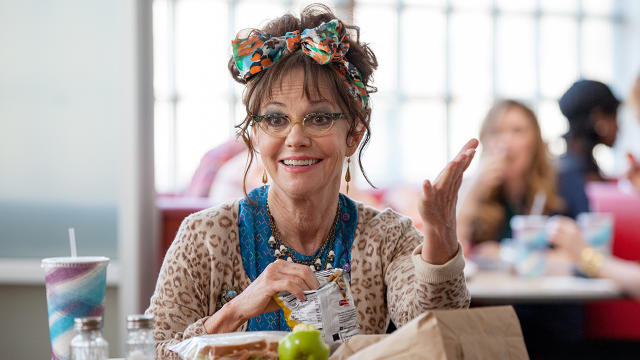
The other part, ultimately, came from Doris, who both Field and Showalter invested a great deal of love in. Field talks about Doris like she’s someone she knows well, and has a lot of sympathy for—”She really has, even in her sixties, a childlike part of her that’s gleeful about getting on in life,” she says, “There’s something so joyful about her, and so willing to be joyful, but if she’s given a moment, then she also has terrible sadness”—and that love and sympathy translates to the screen well.
“I identify with this character,” Showalter says. “I really root for her, and it was so important to me that we laugh along with this movie, but that we don’t laugh at her. We really need to root for her. It’s very important.”
Fast Company , Read Full Story
(80)

